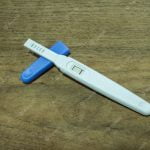Contents
Introduction
Pregnancy detection is a significant milestone for individuals and families, marking the beginning of a new chapter in life. As medical technology advances, questions arise about the capabilities of various diagnostic tools. One such tool is the Computed Tomography (CT) scan, renowned for its ability to visualize internal structures with remarkable detail. However, when it comes to early pregnancy detection, can a CT scan detect pregnancy at 4 weeks? In this article, we delve into the science behind CT scans, their potential limitations, and the appropriate methods for early pregnancy detection.
Understanding CT Scans
Computed Tomography (CT) scan, also known as a CAT scan, is a medical imaging technique that uses X-rays and advanced computer processing to create detailed cross-sectional images of the body. It is commonly employed to diagnose a range of conditions, including identifying tumors, assessing injuries, and evaluating the health of various organs.
Early Pregnancy Detection
At 4 weeks post-conception, a fertilized egg is in the early stages of implantation and embryo development. While this is a pivotal time in the pregnancy journey, it presents challenges for detection through certain imaging methods. CT scans are primarily designed to visualize bones and soft tissues, not the tiny structures that develop in early pregnancy.
Limitations of CT Scans for Pregnancy Detection
- Size and Detail: At 4 weeks, the developing embryo is minuscule, usually less than 5 millimeters in size. CT scans might not have the resolution required to visualize such small structures accurately.
- Ionizing Radiation: CT scans involve ionizing radiation, which can potentially harm the developing embryo. Medical professionals are cautious about exposing pregnant individuals to ionizing radiation due to its potential risks.
- Focused Areas: CT scans are often tailored to focus on specific regions of the body. A scan targeting the abdomen or pelvis might not encompass the exact location of the developing embryo.
- Limited Information: Even if a CT scan were to detect changes in the reproductive organs, it might not definitively indicate pregnancy. Other conditions or changes could lead to similar findings.
Safe Alternatives for Pregnancy Detection
While CT scans might not be suitable for early pregnancy detection, several safe and effective alternatives exist:
- Urinary Pregnancy Tests: These tests detect the presence of human chorionic gonadotropin (hCG) hormone in urine. They are highly sensitive and can often provide accurate results around the time of the missed period.
- Blood Tests: Blood tests can measure hCG levels even earlier than urine tests, offering higher accuracy in detecting pregnancy at an early stage.
- Ultrasound Imaging: Transvaginal ultrasound can visualize the gestational sac as early as 4.5 to 5 weeks. It is a safe and reliable method for confirming early pregnancy.
- Clinical Consultation: Consulting a healthcare provider for a physical examination and medical history review can also aid in determining the likelihood of pregnancy.
Conclusion
While CT scans are invaluable tools in the medical field, they are not suitable for detecting early pregnancy at 4 weeks. The limitations of CT scans, including their focus on larger structures and potential risks associated with ionizing radiation, make them ill-suited for visualizing the tiny structures of an embryo at this stage. Individuals seeking to confirm pregnancy are advised to opt for safer alternatives such as urinary and blood tests or ultrasound imaging, under the guidance of healthcare professionals. Early prenatal care and accurate pregnancy detection contribute significantly to a healthy pregnancy journey.





